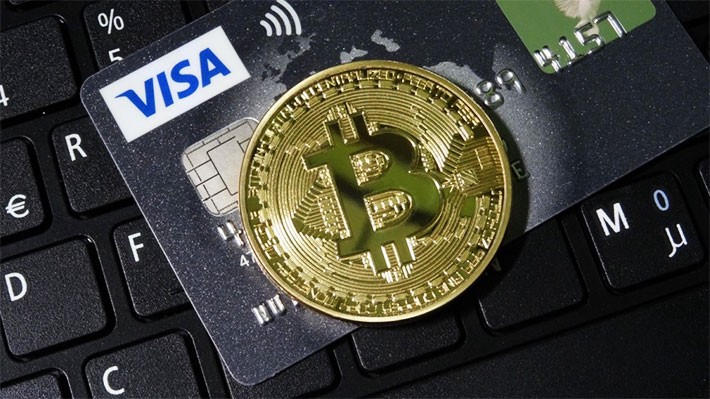Why Women and Companies are Stepping Up Their Trading in Cryptocurrencies

More women invest in cryptocurrencies, as the initial public offering by Coinbase Global Inc. and Bitcoin’s latest record-setting high participation carry these assets classes into the mainstream. Several cryptocurrency exchanges and online brokerage companies say that the number of women who traded crypto in the past year has substantially increased. Some predict the figure to increase much more, partly due to buyers who are more knowledgeable of the asset class, their willingness to buy on hot markets and the promise to raise their savings. Around the same time, those individuals who use dynamic markets to invest are in danger of monthly gains as the wind shifts.
Christine Brown, Chief Operating Officer of Robinhood Crypto, said one in four customers who traded crypto so far on the Robinhood Markets Inc. network in 2021 is a female. Women must have the same position at the table when it comes to investment in cryptocurrencies, said Ms Brown.
Many people have never even considered investing in bitcoin, believing it to be a scam and a sure-fire way to lose money. However, once people take the first step, they believe that crypto is a way for normal people to accumulate money. However, one shouldn’t spend something he can’t afford to lose. According to a poll of 3,000 U.S. adults aged 18 to 65 with a household income of USD 40,000 or more, 26 per cent of existing crypto investors in the United States are women, according to a study published Wednesday by cryptocurrency exchange Gemini. More women than men are interested in getting into crypto in the near future: Women make up 53% of those who are “crypto curious” about investment in the asset class. According to Carolyn Vadino, a spokesperson for Gemini, a quarter of the crypto-curious women polled are under the age of 35, while a quarter is 55 or older.

According to a new eToro survey, some women are more likely than men to hold on to their crypto positions for the long term. They also appear to favour different currencies, with women carrying more bitcoin and ether on average, while men carry more cardano and tron, according to eToro. Cardano and Tron aren’t nearly as common as bitcoin and ether in terms of trading volume. Investors looking to make a lot of money quickly should consider buying and selling coins that aren’t as widely traded, as they are more able to make big returns quickly with smaller, less widely traded securities. According to Guy Hirsch, eToro’s U.S. managing director, women are long-term investors who are less impulsive and want to hang on to their positions, which explains why they are over-indexed on bitcoin.
It’s a good idea to cash in on your profits as soon as possible.
Bitcoin has been a study of curiosity for many companies a year ago and is slowly discovering its place in the corporate world. In their balance sheets, more than a half-dozen public corporations now have some cryptocurrencies. Even more, are beginning to sell services to customers who want to purchase Bitcoin or businesses who want to store it or accept it as payment.
PayPal (ticker: PYPL) made a big splash last month when it announced that some customers would be able to pay using their crypto holdings at checkout, much as they would with a Mastercard. Bank of New York’s Mellon (BK), the oldest bank in the nation, announced in February that it would allow customers the same access and safeguard for stocks and other assets. We believe in the future of digital assets. They’re here to stay for long. For cryptocurrencies, the financial rails now being installed will one day be used for other actifs, such as bonds and funds.
Since direct ownership of Bitcoin entails security threats, financial firms may bill for services such as custody that they also offer for other properties. They will receive similar types of commissions on other investments—and maybe more—by developing systems to support clients keep and sell cryptocurrencies. The final service fees is expected to be higher because of the difficulty that this asset class entails, as well as the additional technological criteria. The roster of potential corporate customers is growing for those organisations. Among the businesses that have adopted Bitcoin are SQ and Tesla. Both firms bought Bitcoin for the company’s treasuries.
Some financial institutions are now making direct investments. MassMutual, a major insurance company known for annuities and other less flashy products, revealed in December that it had purchased $100 million in Bitcoin. It’s part of “our wider approach to capitalize on emerging markets,” according to a spokeswoman, who also pointed out that it’s just 0.04 per cent of the company’s general investment portfolio. The firms with the most Bitcoin deposits are mostly owned by individuals who have a vested interest in cryptocurrencies. This includes Square’s Jack Dorsey, Tesla’s Elon Musk, and Micro-(MSTR) Strategy’s Michael Saylor, who works in business tech. All three companies have large reserves of Bitcoin and are experimenting with new ways to use it.
Tesla also helps customers to purchase automobiles using Bitcoin. Square, on the other hand, has an in-house team working on an open-source initiative to help the whole market, and not just Square, prosper from the potential of a native internet currency like Bitcoin, according to a representative. The ones who have done so are firms where the founder or CEO is the biggest shareholder and still in charge, says Michael Venuto, chief investment officer at Toroso Investments, which launched the Amplify Transformational Data Sharing exchange-traded fund to monitor companies interested in cryptocurrency and blockchain technologies. Toroso’s ETF reflects the rising interests of financial firms in Bitcoin. Around a quarter of their investments are in financial players such as PayPal; another quarter is in publicly traded Bitcoin miners; about 10% is in companies that make crypto mining chips, such as Nvidia and Taiwan Semiconductor Manufacturing; and a similar portion is in investment firms that bet on the wider crypto ecosystem, such as Galaxy Digital. The acceptance of cryptocurrencies by corporate America is a significant move. The original Bitcoin white paper, which outlined how applications known as blockchains could allow peer-to-peer transfers, was created with the aim of bypassing both corporate and government gatekeepers. Any of the businesses that are getting involved now are the types of middlemen that Bitcoin was supposed to replace. Nonetheless, the purist view of Bitcoin has given way to a more open ethos—and the beginnings of a legal structure—that has made the room more accommodating to businesses.
Following the situation, businesses that have welcomed cryptocurrency are banding together to pressure legislators on potential legislation. The Crypto Council for Innovation, which was released in early April, includes Fidelity, Square, and Coinbase Global. In the next few years, you will see a great deal of connection between the cryptocurrency financial system and the traditional financial system, says Zac Prince, Chief Executive Officer of BlockFi, who is in this convergence.
BlockFi works as a crypto bank, paying interest and lending to hedge funds and family offices on Bitcoin’s deposits. Prince says Covid-19 has boosted the transition to company acceptance when financial firms continue to see how everything works by a kind of economic shock that we get only once a decade. And not only did crypto not disappear, but it also did a good job.
However, the corporate encirclement of Bitcoin is limited. The majority of government companies who own it are encrypted and do not have names for the household. A Gartner survey conducted in February conducted by 77 federal executives showed that only 5% expect to purchase it for their treasuries this year. Another 84 per cent do not intend their balance sheets to be owned. The firm experimented with allowing Bitcoin purchases in 2014 but left the initiative because only a few traders decided to use it. A Square spokeswoman says that the technology of Bitcoin was not ready for sales in volume.
It was a monumental decision by PayPal to carry crypto straight to the cash register. But before they reach merchants’ accounts, the payments are converted into cash. The same applies to Mastercard (MA), which also plans to allow people to purchase stuff with cryptographic holdings in shops. There is a catch for those who do this: Any transaction will be deemed a taxable capital gain according to rules of the Internal Revenue Service if bitcoin appreciates the value.

Despite the hurdles, Visa and Mastercard are the main actors in the crypto ecosystem. The credit card networks should be replaced completely by a real Bitcoin network, so users could directly trade over the Internet. However, Visa sees several other uses for cryptocurrencies to allow it to play a role. Instead of first being forced to translate them into conventional currency the company has started to encourage crypto-centred businesses to pay visas with digital property. It has created widgets that enable banks to allow consumers to purchase cryptocurrencies on their websites. And they have joined up with the financial crypto-centric companies in assisting consumers with Visa cards and they’ve also supported a credit card that offers customers discounts in cryptocurrency. Crypto-backed credit card consumers will then spend their income on businesses that have no problem with the difficult aspect of handling and converting Bitcoin. The value is that traders don’t need to update their terminals, so Cuy Sheffield, who is leading crypto-work for Visa, tells how to combine them. The acceptance of the company has accelerated the price of cryptocurrencies. It was a positive cycle in which the acceptance of companies helps to stimulate price, and the rising value convinces more companies to take advantage of it. In the next Bitcoin slump, the true test will arrive.
Who’s going to buy Bitcoin next? It’s most likely that the next ones will be the owners, says Venuto of Toroso. If you think about any of the leading companies in technology, you probably want a Facebook or an Oracle, not an Apple, right? I say, it actually would be finished now if Steve Jobs were still at Apple.




